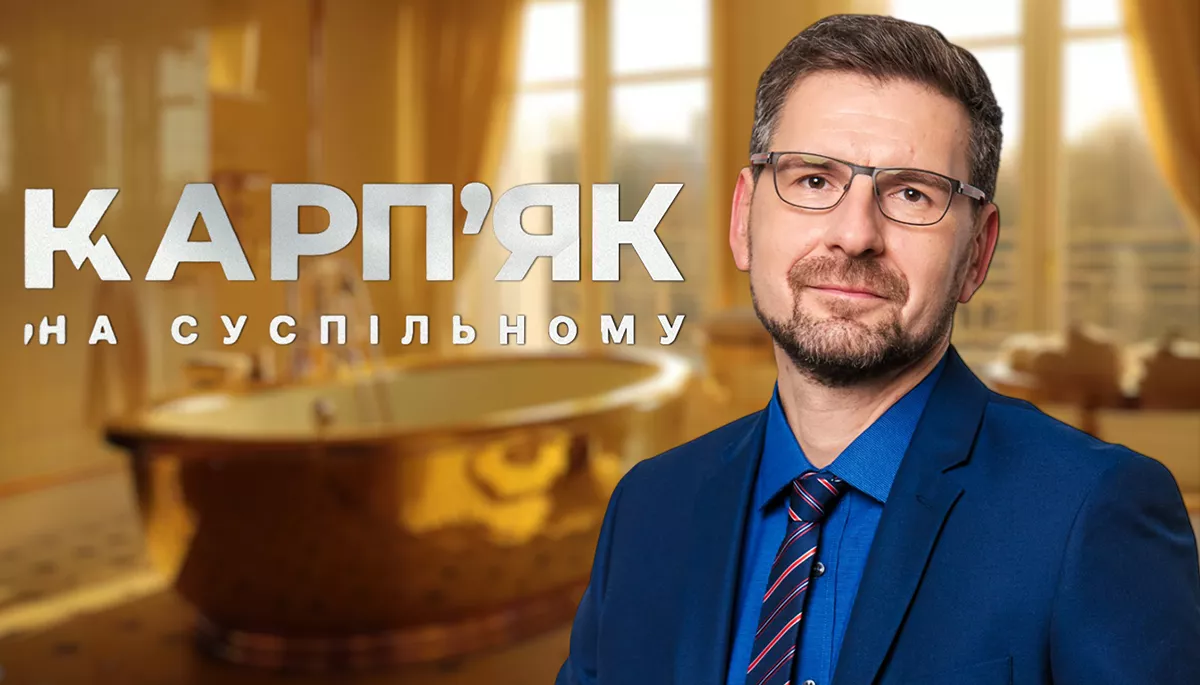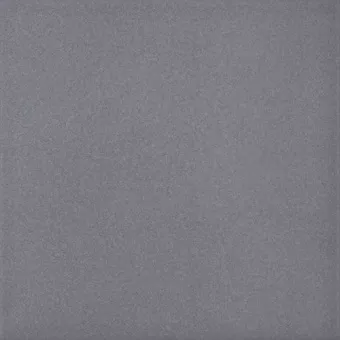Українською читайте тут.
The single word “undoubtedly” was all the host said during Andriy Yermak’s seven-minute monologue.
Over the past two months, Vadym Karpyak, the host of a signature interview show on Suspilne and former presenter of Svoboda Slova on ICTV, has managed to assemble an incredible lineup of guests. Ministers, leaders of the Servant of the People party and the Verkhovna Rada, top law enforcement officials, and even Andriy Yermak himself have all appeared on his talk show.
It’s a guest list that not just other hosts but even entire networks participating in the United News marathon would struggle to match. In an ideal world, government officials would appear on this show because Suspilne is the best channel in the country in terms of journalistic standards, and Vadym Karpyak is one of the most respected TV hosts (and this is true). In our reality, however, government officials appear on shows where they are allowed to promote themselves.
That said, it’s important to note that Vadym Karpyak isn’t lenient with all his guests. His interviews with Danylo Hetmantsev, head of the parliamentary tax committee, or Olena Shuliak, leader of the Servant of the People party, are full of sharp questions and counterarguments.
On the other hand, these interviews are counterbalanced by, for example, the video with Andriy Yermak, head of the Presidential Office. This episode, in essence, turned into a monologue by Yermak. His longest answer lasted 434 seconds — more than seven minutes. That’s enough time to fall off Mount Everest at least three times and hit rock bottom just as many times in the eyes of the viewers.
Of the Presidential Office Nil Nisi Bonum…
"I don’t know anyone who visits the frontline more often than the President. For him, it’s crucial to understand what every person in our country thinks and feels." This quote from Andriy Yermak aptly captures the essence of his interview with Vadym Karpyak. If you’re skeptical, here’s another: "This President is a person for whom nothing is more important than the interests of our country." Or this one: "It is impossible to pressure this President. He can only be influenced by the Ukrainian society that elected him and trusts him. Because this is the President who stayed in the capital…"
It is clear how Andriy Yermak continues to stay in office. What’s unclear is why Vadym Karpyak suddenly decided to help him. The host’s questions mostly revolved around foreign policy: negotiations with the U.S., NATO membership, conditions for potential peace, and Donald Trump. Yet after a 40-minute conversation, Ukrainians learned little, if anything, new. Despite the show’s stated mission — "to convey information directly from the source" — the "source" in this episode might as well have been a press release from the Ministry of Foreign Affairs. Or perhaps the parents of Volodymyr Zelenskyy — after all, who else could better describe the challenges solved solely by "the President’s leadership"?
Andriy Yermak himself preferred cautious, well-worn diplomatic phrases. What are you discussing with the U.S.? A just peace. NATO invitation? Nothing is impossible. Are partners ready to let Russia lose? We need peace through strength. What is your role in the country? I want to be judged by my results, I work hard, but the guys on the frontline have it harder. And, of course, don’t forget the main point: "For our President, only the interests of our country exist."
Such an empty and meaningless interview resulted because Vadym Karpyak ignored another stated part of his mission — "sharp questions." These questions didn’t even need to be critical of Andriy Yermak personally (not that it would have been uncalled for). International politics could also be addressed sharply, as demonstrated in another interview by Suspilne — host Olena Removska’s conversation with Anton Muraveinyk, head of the analytical department of the Come Back Alive foundation. That interview is engaging and worth listening to not only because the guest is sincere and competent but also because the host persistently poses difficult questions. Are we ready to join NATO in parts? Does NATO need this? Will Russia agree? Moreover, Olena actively interacts with her guest, interrupts him, and challenges his answers instead of waiting passively until he’s satisfied. Yermak, however, had a different agenda: "All the influence of the Office of the President is the influence of the President."
In the absence of sharp questions and substantive answers, but amid an overdose of presidential PR, Vadym Karpyak’s record was now extended with a very dubious interview. It’s practically an encyclopedic illustration of a softball interview — with the only difference being that the host didn’t pose overtly fawning questions. Well, apart from the first one, which looked bad in context: how does Yermak feel about being the second most influential man in Europe, according to Politico? However, the criminal silence while the head of the Office incessantly, passionately, and long-windedly praises the President is also an act of complicity. By the way, did you know that "President Zelenskyy has introduced a very important quality into our politics—respect for Ukraine"?
Government Hour
Most of Vadym Karpyak’s other ірщці (seven more were reviewed) appear better, but at times they are still not lively interviews but rather reports from public officials. For example, with former Prosecutor General Kostin, who essentially provided a rundown of high-profile cases. Or with Minister of Health Liashko, who spoke about healthcare reforms and anti-corruption efforts. Or with the Chairman of the Verkhovna Rada Stefanchuk, who did indeed address problematic issues — but mostly in a detached, rather than accountable, manner.
Take, for instance, Karpyak’s question to Stefanchuk about President Zelenskyy’s failure to sign certain bills. Karpyak pointed out that the President has around 40 documents passed by the Verkhovna Rada, which he has neither vetoed nor signed — contrary to what the law requires. So, Karpyak asked, what should be done? Perhaps the law could be changed so that bills are considered automatically signed if the President does not act within two weeks. Stefanchuk replied that changing the law is currently not an option but suggested, "Well, let’s think about it." The host moved on.
One could imagine a different version of this conversation. One where Karpyak asks Stefanchuk how he feels about Zelenskyy’s refusal to sign his bill specifically — to abolish the transition to daylight saving time. Why is the President doing this? Why is he violating the Constitution, which gives him 15 days to decide? Should he be held accountable? What does it mean when the President opposes a decision supported by his own party? In other words, the questions could have been specific, sharp, and personal — questions that cannot simply be answered with a routine report. Or, if the guest attempted to dodge them, it would be noticeable to the audience.
This is especially relevant since, in other interviews, the host has demonstrated his ability to do more than just listen. With Olena Shuliak, for instance, he addressed all the pressing issues facing the Servant of the People party: the lack of a majority during votes, complaints about the President, and toxic former colleagues. He clearly sought real answers, repeatedly asking Shuliak about potential elections and her personal meetings with Zelenskyy. This conversation was not harsh — it was persistent, specific, and focused on problematic topics.
Problematic not because criticizing the government is "cool" or the only correct function of journalism. But because the role of journalism is to understand — and this cannot be achieved through superficial PR. It is to inform — which requires uncovering new information. It is to hold power accountable — not merely for what officials are willing to share in a seven-minute monologue. As it happens, journalists, in their relationship with officials, often resemble doctors or law enforcement officers. Sometimes, their role is simply to observe and ensure that everything is in order. But their true value emerges when problems arise. Problems, for security reasons, are what primarily concern us.
With Danylo Hetmantsev, the host does exactly that: discussing tax hikes, criticism of “Zelenskyy’s thousand” initiative, and corruption schemes. Karpyak may lack deep economic expertise, but he conveys rather pointed criticism from others to the MP. And while Hetmantsev, predictably, engages in some self-promotion, he is also compelled to address and explain the issues raised.
Electoral Flashbacks
Unlike freedom, interviews with officials are not a value in and of themselves. Back in 2019, during the presidential election campaign, Karpyak’s talk show Svoboda Slova turned into a studio for rent. Political parties took turns appearing with their teams, promoting themselves under controlled conditions. It was still technically a talk show, just with 11-minute monologues from Hrytsenko (this is no exaggeration). Such shows likely didn’t help voters any more than party leaflets did, but they permanently tarnished ICTV’s talk show.
A similar fate could await Karpyak’s interviews on Suspilne. Let’s be realistic: the current Ukrainian authorities won’t attend broadcasts where they’re cornered with tough questions. At least not the top officials. But perhaps they will attend broadcasts that Shulyak and Hetmantsev have already survived — where the host outlines problems, conveys criticism, and asks for solutions. Sometimes twice.
We can only thank state leaders for coming to Suspilne and reporting on their work. Yet appearances like those of Yermak and, to some extent, Stefanchuk may actually harm the broadcaster’s image. The officials themselves start to look as though all this public engagement is mere preparation for elections.
We hope that whatever happened with the head of the President’s Office, such jacuzzi-style sessions won’t happen again on one of Ukraine’s best television channels. Because such conversations in its broadcasts evoke bad memories.



